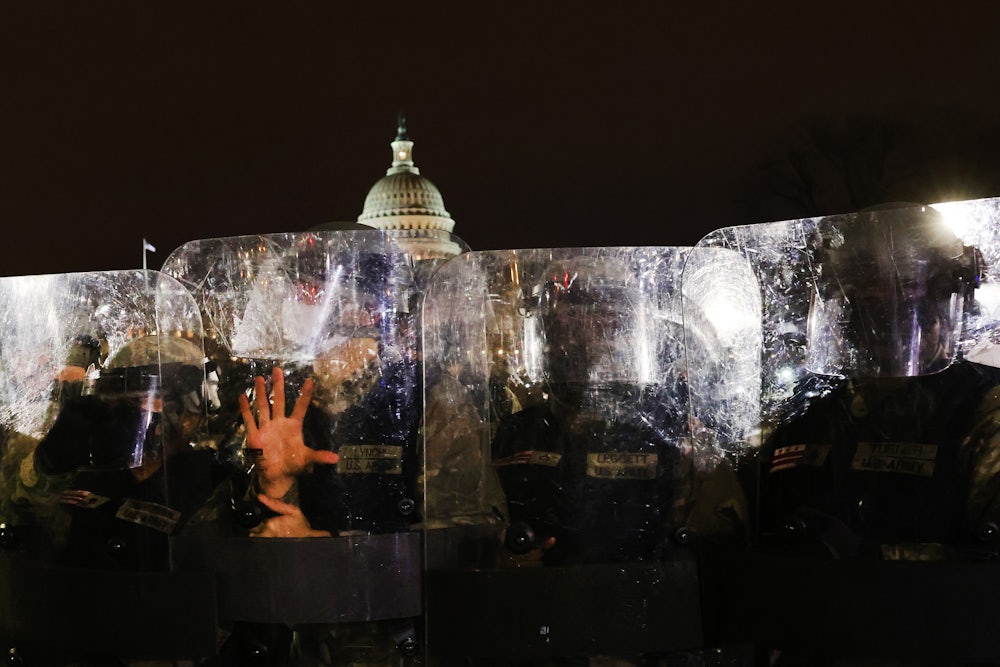In the past week, a number of oil and gas companies have issued statements of concern about the January 6 attack on the Capitol. BP, ConocoPhillips, Marathon Petroleum Corporation, and the Independent Petroleum Association of America—a trade association—even announced in recent days that they would suspend political donations for the short term, rather than continuing to fund the politicians and institutions that incited the raid. “The violence in Washington, D.C. tarnishes a two-century tradition of respect for the rule of law,” tweeted Chevron’s account last week.
What tradition would that be, exactly? While standing up for election results is certainly better than backing the rioters, the apparent shock and outrage expressed in fossil fuel companies’ press releases in the past week seems a little odd considering who they are. U.S. and European drillers have a storied history of subverting democracy the world over to keep oil flowing, prioritizing stability over democracy. And both are subject to debate if there’s a better deal to be had on the other side.
BP—which said it would “reevaluate its criteria for candidate support” over the next six months—got its start when the scion of a wealthy British family struck a deal with a waning Persian monarchy, granting him and later the British empire access to Iranian oil reserves. Plenty of oil empires were built on similarly anti-democratic arrangements between wealthy Westerners and local elites. The British government went to great lengths to protect BP’s property rights against democratic efforts in Iran to share oil wealth more equitably. Most notable was the company egging on a CIA-backed coup (“Operation Ajax”) against Mohammad Mossadegh, the prime minister who nationalized the country’s oil sector.
BP and Shell—a member of the American Petroleum Institute—each continued working in apartheid South Africa years into boycotts protesting white rule. BP sold fuel to South Africa’s military and police, literally fueling apartheid itself. American oil interests, namely the privately owned, U.S.-based Arabian American Oil Company, Aramco, were involved in the earliest days of empowering a warlord to establish the hardly democratic country of Saudi Arabia. “Corporations like Aramco,” historian Timothy Mitchell has written, “brought all the methods of American racial segregation of labour to Arabia, with separate residential compounds and standards of living for four separate racial groups (Americans, Italians, Indians and non-Saudi Arabs, and Saudis).”
As recently as 1997, in a meeting between State Department officials and the pipeline company Unlocal—since incorporated into Chevron—one U.S. diplomat, Mitchell notes, pointed out that good oil business paired with authoritarian religious extremism wasn’t all bad, and certainly had precedent: “The Taliban will probably develop like the Saudis did. There will be Aramco, pipelines, an emir, no parliament and lots of Sharia law. We can live with that.”
As Jane Mayer’s book Dark Money revealed, Fred Koch built his family’s fossil fuel empire in part by furnishing the Nazis with an oil refinery that proved a “key component of the Nazi war machine,” which he praised. During the Spanish Civil War, Torkild Rieber, the head of Texaco—also now Chevron—was critical to the success of General Francisco Franco’s military revolt against that country’s elected government. Rieber provided not just the oil that fueled Nationalist fighter jets but also generous financial support and lines of credit. “He always thought it was much better to deal with autocrats than democracies,” a friend of Rieber’s, quoted by author Adam Hochschild, recounted. “He said with an autocrat you really only have to bribe him once. With democracies you have to keep doing it over and over.”
Fossil fuel companies, it’s fair to say, have had no trouble working with undemocratic regimes. It’s not that their executives are inherently fond of autocrats, though that’s certainly true for some. They just want a stable business climate. If suppressing democratic majorities offers a route toward that, then they’ll gladly abide.
With Trump on his way out of office and a Democratic Congress and White House on their way in, the world’s biggest polluters have every incentive to come out against either Trump or more militant elements within the GOP. Furrowed brows look good right now, as companies prepare to deal with more Democrats over the next few years. When the moment passes, it’s hard to imagine they won’t continue showering Republicans and Democrats alike with campaign donations. The American Petroleum Institute—a trade lobby for the oil and gas industry, representing larger producers—is already charting this ambivalent course, telling Politico that it will not suspend campaign contributions but will nobly “include among its giving criteria whether a lawmaker decided to protest the results of a legitimate election.” Bold stuff.
